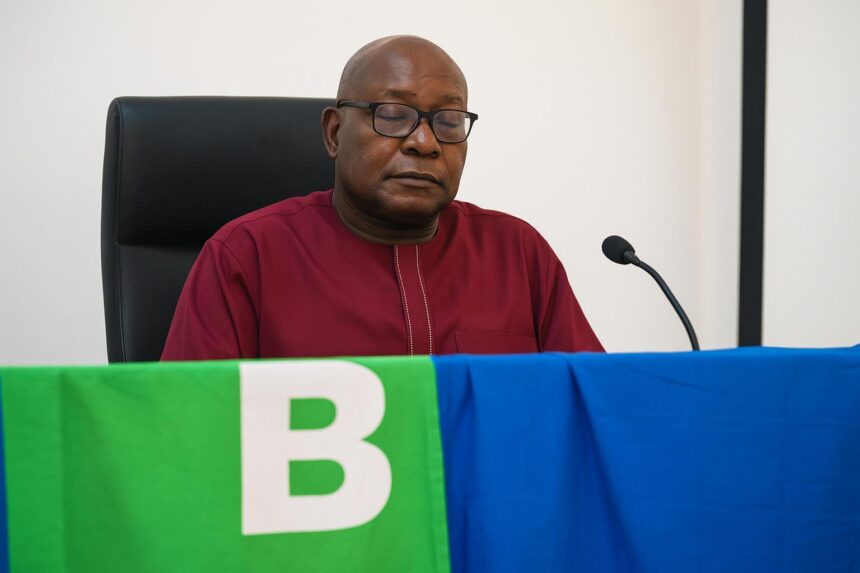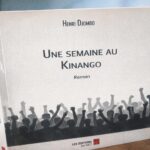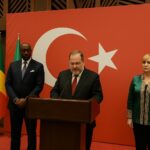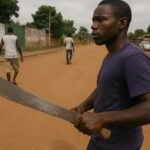Congolese clubs seek clarity on stadium ban
Outside the offices of the Congolese Football Federation this week, club officials from Brazzaville, Pointe-Noire and Dolisie compared training schedules now dangerously adrift. Their shared question was simple: why are the main stadiums still closed three months before the first whistle?
On 29 October, the federation—better known as Fécofoot—met representatives of all 16 Ligue 1 sides and several Ligue 2 hopefuls. The meeting ended with one unanimous decision: request an audience with Sports Minister Hugues Ngouélondélé as soon as possible.
Club executives insist the conversation must yield a calendar and a list of alternative venues, otherwise preseason conditioning, already underway, risks turning into an expensive holding pattern.
League kickoff stalled by facility lockout
The Ministry of Sports officially launched the 2025-2026 sporting year on 28 October, congratulating national teams and promoting community fitness projects. Yet the communique did not mention reopening Massamba-Débat, Kintélé or Pointe-Noire’s municipal ground, all shuttered since early August for undisclosed safety checks.
Fécofoot proposed using the Ignié Technical Centre, 40 km north of Brazzaville, while FIFA-funded emergency fencing is completed. But with only one match-quality pitch and 500 seats, the facility cannot absorb double-headers every weekend.
Private fields in Pointe-Noire and Dolisie were scouted, yet inspectors deemed locker rooms too small, lighting uneven and broadcast cabling absent. Upgrades would take, at minimum, six weeks, pushing kickoff toward the heavy October rains.
Financial and talent drain worries presidents
Two seasons without a full league have already bruised club finances. Ticket revenue disappeared, sponsors renegotiated, and travelling supporters found new hobbies. According to Fécofoot calculations, collective losses topped three billion FCFA last year alone.
Continental football is the second economic pillar. Because of the hiatus, Congo will have no representative in CAF competitions for 2026-2027, costing would-be qualifiers at least 250 000 USD in subsidies and media rights, Fécofoot treasurer Giresse Lengou indicated.
AC Léopards and AS Otohô received one-off permission to play this season, but club president Sidy Mayala warns the exception ‘cannot become a habit’. Without domestic matches, he fears sponsors could pivot toward emerging e-sports leagues instead.
Fécofoot urges united front in talks
Federation president Jean Guy Blaise Mayolas told reporters he still lacks an official explanation for the closures. ‘We favour dialogue over conjecture,’ he said, adding that unity among clubs will strengthen their case during the requested ministerial hearing.
Fécofoot’s legal team is drafting a letter seeking a precise timeline for stadium maintenance, a list of compliance requirements and possible government subsidies for temporary relocations. The document should reach the ministry before Friday, insiders confirmed.
Sports analysts view the move as constructive. ‘Dialogue fits the government’s broader push for institutional coordination ahead of the 2027 AFCON bid,’ commented Canal+ pundit Stéphane Khonde, who expects a compromise within weeks.
Players in limbo as contracts tick
For players, uncertainty feels heavier than double training sessions. Many semi-professional contracts expire on 30 June and contain clauses tied to league appearances. If no matches are scheduled, athletes could depart on free transfers, stripping clubs of vital fees.
Goalkeeper Christ Barel of Nico-Nicoye says he receives daily WhatsApp offers from Gabonese and Rwandan sides. ‘I love playing at home, but I also need competition to keep my national team place,’ he admitted after a morning workout in Tié-Tié.
Medical staff are equally anxious. Physiotherapist Thérèse Makosso notes a rise in overuse injuries because training cycles lack the natural peaks and rests of match play. ‘Bodies are built for rhythm; uncertainty breeds fatigue,’ she warned.
Hope pinned on swift technical upgrades
FIFA engineers expected in mid-November will assess fencing, drainage and CCTV at the Ignié complex. Government officials say those findings will inform a phased reopening plan that could allow limited-capacity matches before the December holidays, health protocols permitting.
Until then, Fécofoot is preparing compact mobile-first coverage—short highlight clips, player diaries, behind-the-scenes photos—to keep fans engaged on smartphones. ‘Our football must be visible even when the gates are closed,’ digital director Prisca Kayombo insists.
Supporters keep faith on social media
From Makélékélé to Poto-Poto, fan groups are filling the void with podcasts dissecting tactics from last season. A recent Twitter Space hosted by Red Devils Support attracted more than 2 000 listeners, proof that hunger for domestic football remains strong despite the pause.
LED vendor Christian Mavoungou, who works outside Massamba-Débat, says match days once covered school fees for his twins. ‘I post old goal videos to stay visible to customers,’ he laughs, ‘but there is no substitute for the roar of a real crowd.’
The ministry has encouraged supporters to remain patient, pointing to successful renovations at Kintélé ahead of the 2023 Jeux Africains de la Zone 4. Officials promise regular progress updates through televised site visits once contractors re-enter the stadiums.
Meanwhile, video game cafés report an uptick in FIFA tournaments mirroring the dormant league’s fixtures, a light-hearted reminder that imagination can keep the beautiful game alive until real nets ripple again.





















